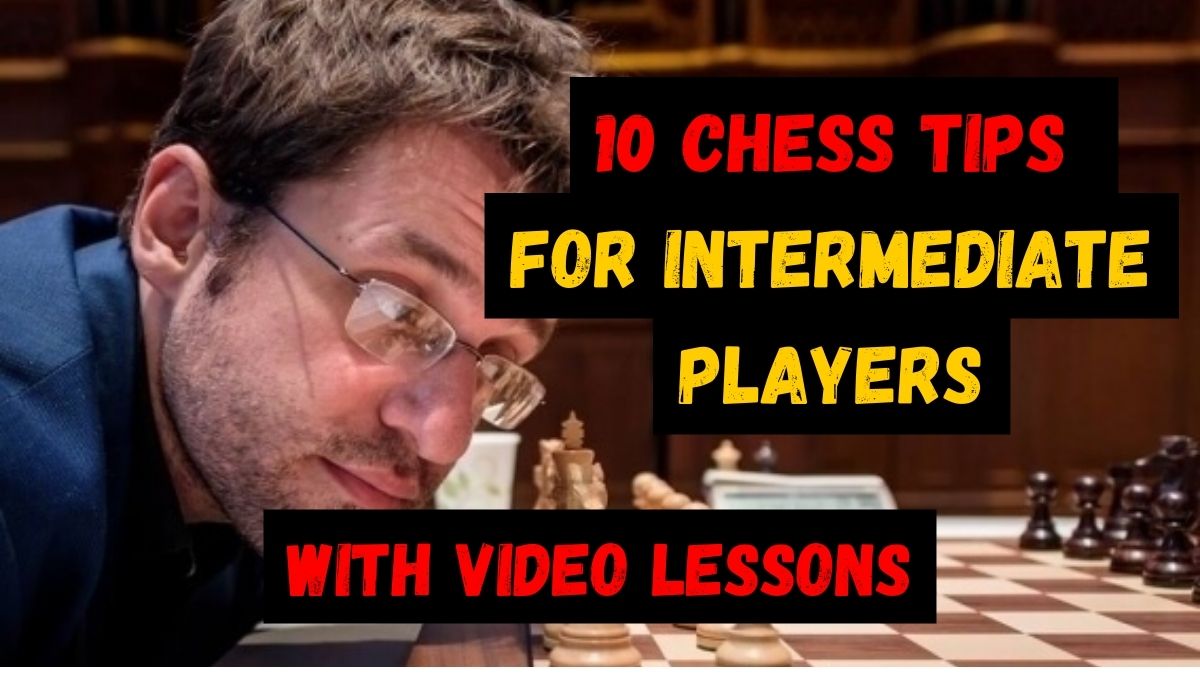If you’re an intermediate chess player looking to level up your game, this guide is for you. Whether you’re seeking tactics, strategic insights, or just ways to stop blundering in the middlegame, we’ve packed this post with actionable advice that covers every phase of the game—opening, middlegame, and endgame.
Why Intermediate Players Struggle
Most intermediate players (typically rated between 1500–2000 on FIDE or Chess.com) are solid in the opening, average in the endgame, but often stumble in the middlegame. That’s where tactical awareness, planning, and strategic play really matter—and that’s exactly what we’ll cover here.
But before we dive in, let’s clarify:
What Counts as Intermediate in Chess?
If your rating is around 1500–2000 and you can spot tactics more than half the time (say 60%), you’re squarely in the intermediate category. At this level:
- You’ve likely mastered a couple of openings with both White and Black.
- You rarely fall for basic traps.
- But you may struggle with deep plans, unfamiliar gambits, or long-term endgame strategies.
Now let’s break down the most important skills you need to improve.
Top 10 Chess Tips for Intermediate Players
1. Improve Your Endgame Awareness
Endgames aren’t just about promoting pawns. They’re full of tactical traps. Many players relax too early, especially when ahead in material. But a sneaky knight fork or misplayed pawn endgame can turn a win into a loss.
✅ Tip: Always calculate to the end. Watch GM Daniel Naroditsky’s endgame series for solid fundamentals:
2. Learn How to Refute Bad Ideas
At this level, you’ll often face opponents trying offbeat or unsound ideas—like early queen attacks or dubious gambits.
✅ Tip: Study common refutations like how to punish the Englund Gambit or bad queen moves. IM Levy Rozman (aka GothamChess) has great videos for this:
3. Master the 35 Core Chess Principles
There are around 35 widely accepted principles in chess. While some are situational, others—like “rooks belong on open files” or “centralize your king in the endgame”—are nearly universal.
✅ Tip: Learn when to apply these principles, not just what they are. Strategy beats memorization.
4. Memorize Tactical Themes by Name
There are roughly 24 named tactical motifs in chess—pins, forks, skewers, discovered attacks, etc. Knowing their names and patterns helps you recognize them faster during games.
✅ Tip: Review tactics regularly. Doing so helps with pattern recognition.
5. Analyze Your Games the Right Way
Don’t try to fix everything at once. Focus on analyzing key mistakes from lost games—especially where you missed tactics or chose the wrong plans.
✅ Tip: Use engines sparingly—try to identify your own mistakes first.
6. Be Wary of False Security
One of the most dangerous feelings in chess is thinking your position is solid when it isn’t. Misjudging the position can lead to sudden tactical losses.
✅ Tip: Always ask, “What’s my opponent threatening?” before every move.
7. Learn the Three Core Endgame Principles
Endgames are simpler in appearance but demand accuracy. Here are three essentials:
- Centralize your king (especially in minor piece endgames)
- Protect pawn structure
- Create and support passed pawns
✅ Tip: Master the “rule of the square” and basic king activity.
8. Know When to Search for Tactics
You can’t calculate every move in blitz or bullet. Instead, train your intuition to know when the board screams “there’s a tactic here!”
✅ Tip: Learn key tactical signals and decision points.
9. Always Have a Middlegame Plan
The old saying goes: “A bad plan is better than no plan.” Wandering aimlessly in the middlegame is one of the biggest causes of rating plateaus.
✅ Tip: Before each move, ask yourself: “What’s my plan?” Even if it’s simple (like trading pieces or pushing pawns), have a direction.
10. Don’t Get Greedy with Gambits
Gambits are tempting—free pawns, quick leads—but don’t fall for them blindly. Many gambits, like the Englund, have clear refutations.
✅ Tip: Avoid playing speculative gambits unless you know the theory. Against strong players, they’re more risk than reward.
Bonus Tip: Read Chess Books
If you’re serious about improving, books are a must. Grandmasters often credit their breakthroughs to studying classic chess literature.
✅ Tip: Start with books recommended by top players like Vidit Gujrathi.
Final Thoughts
These tips aren’t just theory—they’re practical tools to sharpen your game. Implement a few, or go all in, and track your improvement. If these feel too basic, you might be ready for advanced strategies—check out our [Advanced Chess Tactics Guide] or explore more in our chess section!
